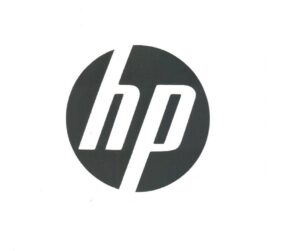On 18 January 2024, in case C-367/21 (still no English version) the CJEU ruled again on the exhaustion of EU trade mark rights (following its five rulings of 17 November 2022 including C-175/21 Harman International Industries, C-224/20 Merck Sharp & Dohme, and C‑204/20 Bayer Intellectual Property). The Polish IP Court had referred questions to the CJEU regarding the burden of proof for first placement of the goods on the EU (or EEA) market by or with the trademark owner’s consent.
Hewlett-Packard (HP) marketed IT equipment in the EU under EUTMs “HP”.
HP worked with licenced distributors who sold only to end users or network members. HP used serial numbers on the products as a code for the intended market but only HP itself could read that code. Senetic S.A., a Polish IT retailer, bought HP equipment from suppliers (other than the official HB distributors) located in the EEA and put them on the market in Poland. Senetic was assured by the suppliers that the goods could be marketed lawfully in the EEA but could not get HP to confirm this based on the serial numbers. Senetic’s defence against HP’s infringement action rested on the exhaustion of EUTM rights. The judgment boils down to a relatively simple finding on burden of proof, which in turn is based on 34, 35 TFEU.

The CJEU confirmed that, in principle, it is for the importer to demonstrate that EUTM rights have been exhausted when goods are resold outside the owner’s selective distribution network. This is so even though suppliers often “are not inclined to reveal their sources of supply” (para. 61). The assurance by the supplier that the goods can be lawfully marketed is not sufficient. Exhaustion must be shown for each individual product, namely by proving that they were placed on the market in the EEA by or with the consent of the trademark holder (para. 54).
However, adjustments to this rule may be required, particularly where the full burden of proof on the defendant could lead to a real risk of partitioning the market in the EEA (para. 60). This can be the case where the defendant faces insurmountable difficulties proving that the goods were legitimately placed on the EU market, as the trademark owner could then effectively block parallel importation. It must be borne in mind that suppliers are reluctant to reveal their sources within the trademark owner’s distribution network – and even if they did, the trademark proprietor could then block future supply to the non-compliant distributor (para. 63-65). In such a situation it is justified to require the trademark owner to provide information about where the products first hit the market.
Comment
Trade mark owners who find that their selective distribution network within the EEA is leaky will not interpret this judgment as strengthening their position on the basis of trade mark law. The burden of proving exhaustion of the rights conferred by an EUTM cannot rest solely on the defendant in an infringement action where the goods bearing that trade mark and distributed through a selective distribution network whose members may only resell them to other members of that network or to final consumers were purchased by the defendant in the EU or the EEA after obtaining assurances from the sellers (Van Doren C-244/00). However, the mere objective inability to bear the burden of proof of exhaustion does not justify its reversal. To meet the burden of proof, the defendant must, in this author’s view, disclose all the circumstances showing that the elements of exhaustion have been met. The mere fact that his suppliers refuse to share commercial information as to sources does not relieve the parallel importer from the obligation to do what he can to avoid infringing trade marks. He therefore must analyse the individual goods on a regular basis in an attempt to ensure that they were lawfully put on the EU or EEA market. On the other hand, it is only fair to also expect the trade mark owner to provide at least the kind of information that is at his finger tips as to whether the goods were placed on the EU / EEA market by him or with his consent.
_____________________________
To make sure you do not miss out on regular updates from the Kluwer Trademark Blog, please subscribe here.


